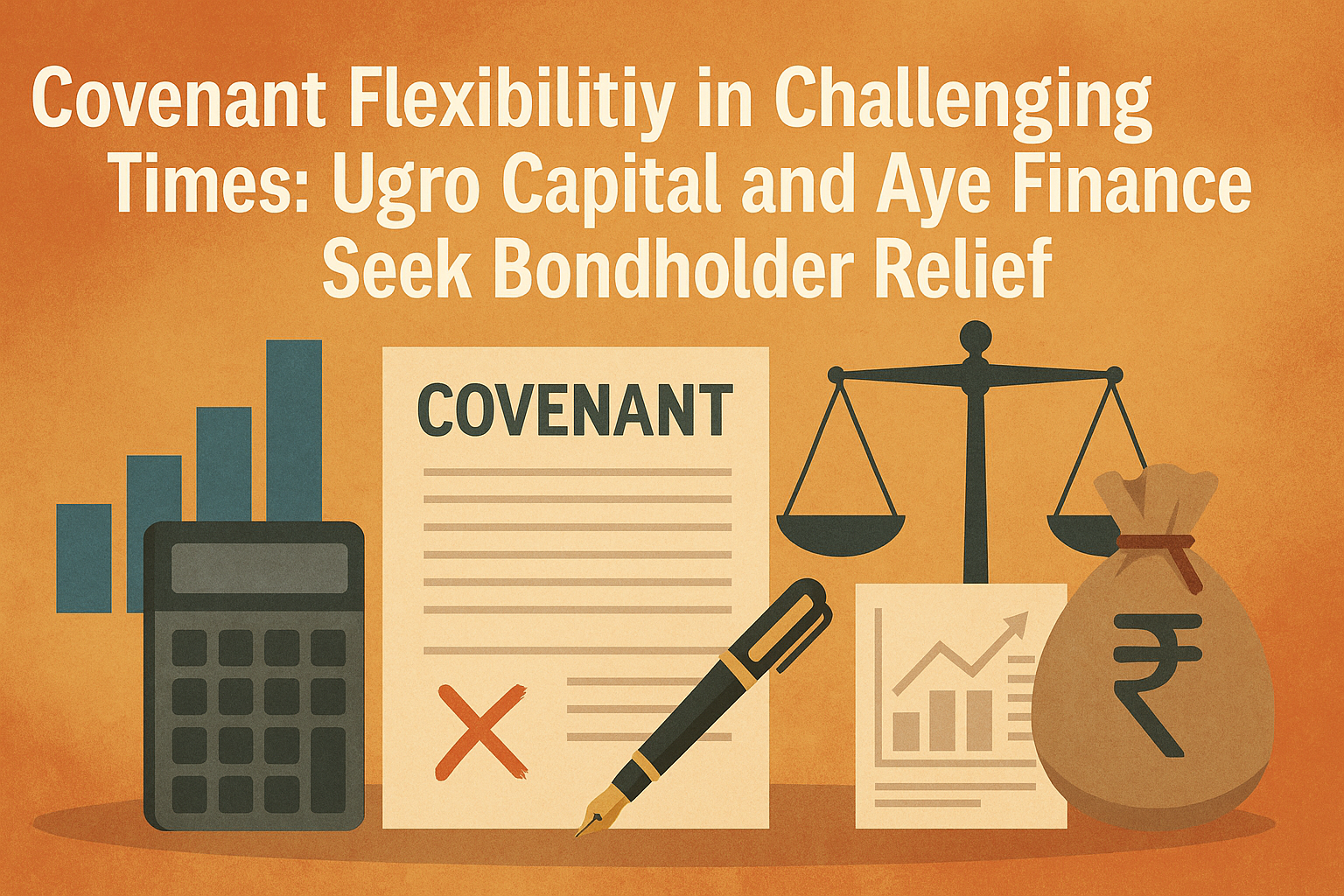In a notable move reflecting current pressures in the financial ecosystem, two non-bank financial institutions (NBFCs)—
Ugro Capital and
Aye Finance—have reached out to their bondholders, seeking waivers on specific covenants embedded in their bond agreements. This development sheds light on how dynamic economic environments can prompt lenders to re-negotiate terms once considered firm, particularly when those terms become difficult to uphold despite otherwise sound financial health.
Understanding the Context: Covenants in Debt Instruments
Covenants are essentially clauses included in loan or bond agreements, setting forth performance thresholds or restrictions. They exist to protect investors by ensuring the borrower adheres to certain financial and operational metrics. Breaching these covenants can trigger penalties such as increased interest rates or, in more severe cases, the recall of loans. However, breaches are not always a sign of insolvency—they can simply indicate shifts in market conditions or operational strategy.
Ugro Capital: Marginal Miss on Capital Adequacy
Bond Details:
- Value: ₹49.28 crore
- Issuance Year: 2022
- Maturity: September 2025
Ugro Capital breached the covenant mandating a
Capital to Risk Weighted Assets Ratio (CRAR) of 20%. For the quarter ending March 2025, the NBFC reported a CRAR of
19.41%, falling short of the agreed-upon threshold but still comfortably above the
RBI’s regulatory minimum of 15%.
In a communication to bondholders, trustee
IDBI Trusteeship Services acknowledged the breach and initiated the formal process of seeking a waiver. Ugro justified the shortfall as a minor deviation and pointed out that more recent issuances have required only the RBI-mandated 15% CRAR.
The company also announced plans to
raise ₹1,315 crore through a mix of preferential and rights issues—an infusion expected to boost its capital adequacy to
29.4%, significantly reinforcing investor confidence.
Aye Finance: Preemptive Strike on Stressed Assets
Bond Details:
- Value: ₹50 crore
- Issuance Year: 2024
Unlike Ugro,
Aye Finance has not yet breached any covenant but foresees a potential issue. The covenant in question limits the ratio of
gross bad loans and write-offs to total loans to 8%. As of December 2024, this ratio was 6.82%. However, the lender anticipates a possible breach due to elevated write-offs, attributed to broader economic headwinds.
Trustee
Catalyst Trusteeship Ltd communicated the situation to bondholders in April. Aye’s CFO,
Krishan Gopal, underscored the proactive nature of the communication and emphasized the company’s continued
strong liquidity position and
commitment to transparency. He noted that no bond has been recalled due to covenant issues and expects the business climate to improve moving forward.
A Broader Trend: Covenant Breaches in a Changing Market
Market watchers observe that these incidents are not isolated.
Anshul Gupta, co-founder of Wint Wealth, pointed out a recent uptick in covenant breaches, particularly in segments like
microfinance and
MSME lending, reflecting sector-specific stress rather than institutional failure.
Gupta also clarified that a covenant breach doesn’t automatically spell danger for bondholders. “If the entity’s repayment capability remains intact, waivers are commonly granted,” he noted, with trustees empowered to act based on majority investor consensus.
Investor Takeaways: Risk Management in Fixed-Income Portfolios
For investors, this episode serves as a reminder that:
- Covenant flexibility can be a tool for navigating economic turbulence without undermining repayment ability.
- Due diligence should go beyond just financial ratios and include context—why a breach occurred and what corrective actions are in place.
- Engagement with trustees and staying informed through official communications can ensure that retail bondholders are not caught off guard.
Conclusion: A Sign of Maturity in India’s Bond Market
The cases of Ugro Capital and Aye Finance demonstrate the evolving nature of India’s bond market—where dialogue and transparency between issuers and investors are increasingly becoming the norm. While covenants remain crucial for investor protection, their practical enforcement is showing a welcome degree of realism, guided by the principle of ensuring business continuity and protecting long-term investor value.


